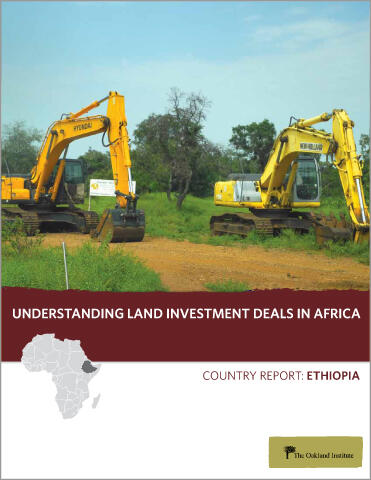 |
| Source: Oakland Institute |
For example, it pointed out there are no mechanisms in place to ensure that these investments contribute to improved food security. There are incentives to ensure that food production is exported from Ethiopia, providing foreign exchange at the expense of adding to local food supply. The agreements do not ensure that local people benefit from the business opportunities that these investments offer.
While large foreign investments grab the headlines, many Ethiopian land deals involve small scale investors, both local and from the Ethiopian diaspora. The vast majority of foreign investors in Ethiopia are private companies, mostly Indian.
The Oakland Institute found evidence that only two countries — Egypt and Djibouti — had invested directly in Ethiopian farmland. Contrary to press reports, China was absent from the land investment deals, although a Chinese company is about to sign the first Chinese land investment in Ethiopia — a 25,000 hectare concession in Gambella region to produce sugarcane.



